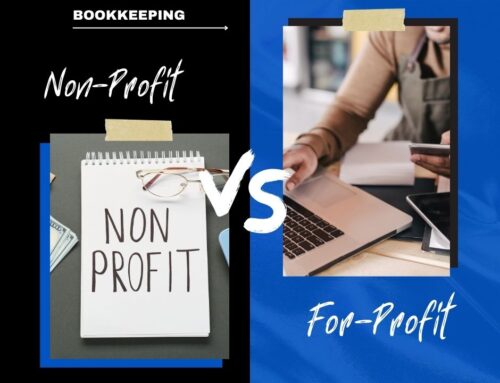As a small business owner or contractor, you must set up a DCAA-compliant accounting system to compete for government contracts.
What is DCAA?
The acronym stands for “Defense Contract Audit Agency.”
This is a government organization that’s responsible for auditing contracts for Department of Defense (DoD) jobs. Other government offices can also use the DCAA for audit assistance, accounting services, and financial advisory needs.
The purpose of the DCAA is to ensure taxpayers are getting the best value for DoD spending. Audits help determine if contracts are reasonable, allowable, and allocable.
If your business is planning to bid for government contracts or you’ve worked on some in the past, it’s crucial that your small business accounting system meets DCAA standards.
What is DCAA Compliance?
Contrary to popular belief, the DCAA does not certify businesses or contractors. So, you won’t receive a compliance certificate or anything like that.
DCAA compliance means that your organization follows the rules, recommendations, and best practices set by the DCAA’s recommendations. Following these rules will prepare you for audits and ensure that you’re compliant with federal laws.
In most cases, DCAA compliance requires additional recordkeeping for jobs. For example, costs (both direct and indirect) must be tracked separately. The DCAA also insists on contractors keeping an accurate separation of hours to track tasks related to the contract.
DCAA Pre-Award Survey
Any contractor or business that is new to government contracting should use the Pre-Award Accounting System Adequacy Checklist, available on the DCAA website.
The checklist will help ensure your organization’s compliance.
This checklist is not an audit. It’s basically an evaluation of your company’s accounting system. It’s used to make sure your small business can perform a proposed government contract.
The pre-award survey is not nearly as in-depth as a DCAA audit. However, it’s the first milestone that you’ll need to win a government contract. Your small business will get a “pass” or “no pass” status based on the pre-award survey.
Your contracting officer will eventually give the pre-award checklist to the DCAA prior to an audit of your company’s accounting system.
A pre-award survey has two primary areas of focus:
- The DCAA wants to ensure that you have the financial means to complete the contract. They’ll review financial documents such as your cash flow forecasts, payroll tax returns, loan statements, bank statements, SEC filings, etc.
- Your accounting system is the next major point of emphasis during the pre-award survey. The DCAA wants to make sure that your accounting system meets the criteria for their standards. You must use a system that can properly track costs and hours.
There is no such thing as “DCAA approved software” or “DCAA compliant software.”
You’ll just need to make sure that the software you’re using has the capability to meet DCAA requirements.
DCAA Compliance Requirements for Accounting
Before you choose specific accounting software, you’ll need to make sure that it can handle certain functions. Here’s a brief overview of some accounting platform requirements for DCAA compliance:
Time Tracking
Different tasks related to a government contract must be tracked separately. So, you need to find an accounting system that allows your staff to punch-in and clock-out whenever they are working on those tasks.
Direct and Indirect Costs
Your accounting system needs to understand the difference between a direct and indirect cost.
For example, materials and labor used for a contract would both be considered a direct cost. But utilities like electricity, gas, and water are not directly associated with one project. These are indirect costs.
Even though indirect costs are not directly tied to one specific task or project, they are still necessary to run a business and complete the government contract. Your accounting system must apply a consistent formula when allocating indirect costs for billing purposes.
Exclusion Costs
Not every business expense can be included in a government contract. For example, federal agencies cannot be billed for entertainment costs or charitable donations.
Your accounting system must be able to distinguish between what costs are allowable and unallowable for government contracts. Any costs that aren’t allowed must be removed from a government invoice.
Supporting Documents
During a DCAA audit, your business must be prepared to produce all documents to support an invoice.
For example, labor costs must be supported by employee timesheets. Raw materials would be supported by a supplier invoice.
While you’re not required to maintain these documents electronically, it will make the audit go much smoother. So, your accounting system must be able to store and maintain any relevant supporting documents to a contract.
General Ledger
The transactions associated with a government contract should be reconciled with all other company accounts.
Your general ledger must be updated on a regular basis. Ledger postings should include all company activity. In short, all government contract activity and other business activities will be posted in the same place.
Cost Accounting Standards (CAS)
The CAS consists of 19 rules and standards implemented by the US government. All contractors and subcontractors working on government contracts must abide by these rules.
Your accounting system must be able to apply standards set forth by the Cost Accounting Standards.
Subcontractors
Government contracts involving subcontractors are a bit more complicated.
For example, invoices from a subcontractor can only be included in the bill for a project if it meets certain conditions. As always, the subcontractor must comply with CAS, as we previously discussed.
If a subcontractor contracts tasks to other subcontractors, each additional subcontractor must meet these standards as well.
Your accounting system must be able to segment any subcontracted work. This will ensure that all DCAA requirements are being followed.
Conclusion
Small business owners bidding for government contracts must set up a DCAA-compliant accounting system before moving forward.
Once you find software that meets DCAA requirements, you’ll need to fill out the pre-award checklist. This helps ensure that your and accounting system and processes will pass a DCAA audit.
If you’re new to government contracting, consult with an accountant or outsourced bookkeeping firm.
Your company can meet DCAA standards without spending a fortune on expensive software. You just need to have the right bookkeeper in place.





